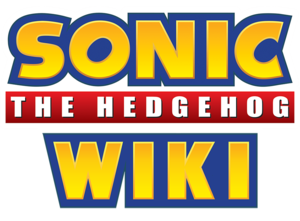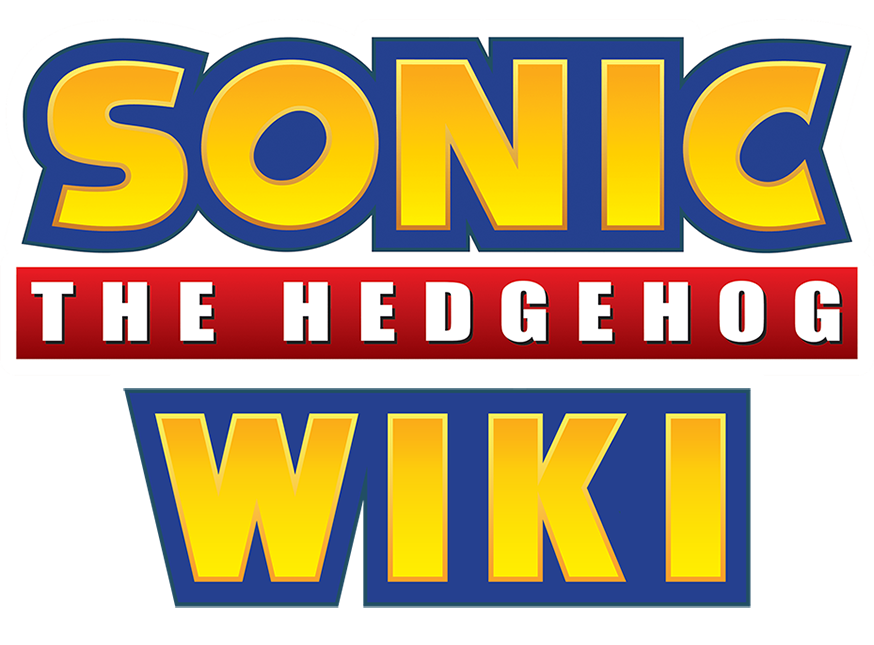Sonic City (talk | contribs) No edit summary |
Sonic City (talk | contribs) No edit summary |
||
| (5 intermediate revisions by the same user not shown) | |||
| Line 1: | Line 1: | ||
[[File:Wiki logo.png|right|frameless]] | [[File:Wiki logo.png|right|frameless]] | ||
Begun on July | Begun on July 22, 2023, the '''Sonic the Hedgehog Wiki''', also known as the '''Sonic Wiki''', has grown to {{NUMBEROFARTICLES}} articles and provides extensive coverage of the [[Sonic the Hedgehog series]]. This includes detailed information on the numerous game titles released by [[SEGA]], as well as insights into the Sonic movies, TV shows, and comics. | ||
The wiki's content spans character profiles, locations, item descriptions, and game synopses. Its goal is to become the largest and most comprehensive ''[[Sonic the Hedgehog]]'' encyclopedia on the internet. | |||
The Sonic Wiki is proudly a part of [https://sonic-city.net Sonic City]. | |||
==Purpose and Philosophy== | ==Purpose and Philosophy== | ||
The Sonic the Hedgehog's | The Sonic the Hedgehog Wiki's main purpose is to establish an independent, community-driven resource that distances itself from Fandom for several compelling reasons: | ||
*'''Invasive Ads''': Fandom | |||
*'''Content Overload''': Fandom's | * '''Invasive Ads''': Fandom is notorious for excessive advertising, including pop-ups and banner ads that disrupt the user experience. These ads slow down page loading times and create a frustrating environment for visitors. | ||
*'''Poor Community Moderation''': | * '''Content Overload''': Fandom's layouts often include cluttered designs, irrelevant content, and an overwhelming number of ads, making it difficult for users to locate the information they need. | ||
*'''Limited Customization''': Fandom | * '''Poor Community Moderation''': Fandom's moderation policies are inconsistent, sometimes allowing abusive users, spam, and low-quality content to persist due to ineffective oversight. | ||
*'''Ownership and Data Privacy Concerns''': Fandom | * '''Limited Customization''': The rigid, standardized templates on Fandom limit the ability for communities to customize their wikis, stifling creativity and individuality. | ||
*'''Profit-Driven Focus''': | * '''Ownership and Data Privacy Concerns''': Since Fandom's acquisition by a larger corporation, there are ongoing concerns about ownership of user-generated content and the handling of personal data, particularly with third-party integrations. | ||
*'''Restricted Editing and Content Control''': | * '''Profit-Driven Focus''': Fandom's monetization efforts, such as increased advertising and subscription models, often prioritize profit over user experience, leading to criticism of exploitative practices. | ||
*'''Clunky User Interface''': | * '''Restricted Editing and Content Control''': Overzealous administrative control on some Fandom wikis creates a less inclusive environment, restricting who can contribute or edit content. | ||
*'''Inconsistent Content Ownership''': Fandom's Terms of Service | * '''Clunky User Interface''': Fandom's outdated design and poor navigation, combined with an ineffective search function, result in a subpar browsing experience, especially for new users. | ||
*'''Forced Account Creation''': | * '''Inconsistent Content Ownership''': Fandom's Terms of Service assert ownership over content created on their platform, raising concerns about the exploitation of user contributions and unclear ownership rights. | ||
* '''Forced Account Creation''': Fandom often requires users to create an account to contribute or interact, discouraging those who prefer anonymity or wish to avoid the hassle of registration. | |||
By moving away from Fandom, the '''Sonic Wiki''' strives to provide a cleaner, faster, more customizable, and community-focused alternative that respects contributors and prioritizes user experience over profit. | |||
The Sonic Wiki also functions as an integral hub for [https://sonic-city.net Sonic City], the main website. It serves as a resource for readers, users, and members to access in-depth information on the [[Sonic the Hedgehog series]]. Articles on Sonic City are designed to automatically link to existing entries on the '''Sonic Wiki''' if the relevant keywords align with topics already covered in the Wiki. This seamless integration ensures a cohesive experience, connecting Sonic City's content with detailed resources on the '''Sonic Wiki''' for an enhanced community-driven platform. | |||
[[Category:Stubs]] | [[Category:Stubs]] | ||
Latest revision as of 10:08, 30 December 2024

Begun on July 22, 2023, the Sonic the Hedgehog Wiki, also known as the Sonic Wiki, has grown to 191 articles and provides extensive coverage of the Sonic the Hedgehog series. This includes detailed information on the numerous game titles released by SEGA, as well as insights into the Sonic movies, TV shows, and comics.
The wiki's content spans character profiles, locations, item descriptions, and game synopses. Its goal is to become the largest and most comprehensive Sonic the Hedgehog encyclopedia on the internet.
The Sonic Wiki is proudly a part of Sonic City.
Purpose and Philosophy
The Sonic the Hedgehog Wiki's main purpose is to establish an independent, community-driven resource that distances itself from Fandom for several compelling reasons:
- Invasive Ads: Fandom is notorious for excessive advertising, including pop-ups and banner ads that disrupt the user experience. These ads slow down page loading times and create a frustrating environment for visitors.
- Content Overload: Fandom's layouts often include cluttered designs, irrelevant content, and an overwhelming number of ads, making it difficult for users to locate the information they need.
- Poor Community Moderation: Fandom's moderation policies are inconsistent, sometimes allowing abusive users, spam, and low-quality content to persist due to ineffective oversight.
- Limited Customization: The rigid, standardized templates on Fandom limit the ability for communities to customize their wikis, stifling creativity and individuality.
- Ownership and Data Privacy Concerns: Since Fandom's acquisition by a larger corporation, there are ongoing concerns about ownership of user-generated content and the handling of personal data, particularly with third-party integrations.
- Profit-Driven Focus: Fandom's monetization efforts, such as increased advertising and subscription models, often prioritize profit over user experience, leading to criticism of exploitative practices.
- Restricted Editing and Content Control: Overzealous administrative control on some Fandom wikis creates a less inclusive environment, restricting who can contribute or edit content.
- Clunky User Interface: Fandom's outdated design and poor navigation, combined with an ineffective search function, result in a subpar browsing experience, especially for new users.
- Inconsistent Content Ownership: Fandom's Terms of Service assert ownership over content created on their platform, raising concerns about the exploitation of user contributions and unclear ownership rights.
- Forced Account Creation: Fandom often requires users to create an account to contribute or interact, discouraging those who prefer anonymity or wish to avoid the hassle of registration.
By moving away from Fandom, the Sonic Wiki strives to provide a cleaner, faster, more customizable, and community-focused alternative that respects contributors and prioritizes user experience over profit.
The Sonic Wiki also functions as an integral hub for Sonic City, the main website. It serves as a resource for readers, users, and members to access in-depth information on the Sonic the Hedgehog series. Articles on Sonic City are designed to automatically link to existing entries on the Sonic Wiki if the relevant keywords align with topics already covered in the Wiki. This seamless integration ensures a cohesive experience, connecting Sonic City's content with detailed resources on the Sonic Wiki for an enhanced community-driven platform.
